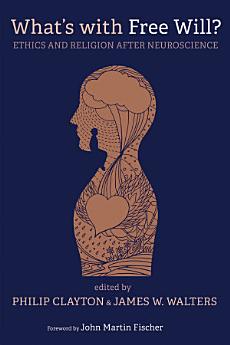What’s with Free Will?: Ethics and Religion after Neuroscience
Philip Clayton · James W. Walters
Mar 2020 · Wipf and Stock Publishers
Ebook
222
Pages
family_home
Eligible
info
reportRatings and reviews aren’t verified Learn More
About this ebook
Are humans free, or are we determined by our genes and the world around us? The question of freedom is not only one of philosophy's greatest conundrums, but also one of the most fundamental questions of human existence. It's particularly pressing in societies like ours, where our core institutions of law, ethics, and religion are built around the belief in individual freedom. Can one still affirm human freedom in an age of science? And if free will doesn't exist, does it make sense to act as though it does? These are the issues that are presented, probed, and debated in the following chapters. A dozen experts―specialists in medicine, psychology, ethics, theology, and philosophy--grapple with the multiple and often profound challenges presented by today's brain science. After examining the arguments against traditional notions of free will, several of the authors champion the idea of a chastened but robust free will for today, one that allows us still to affirm the value of first-person experience.
About the author
Philip Clayton holds the Ingraham Chair at Claremont School of Theology and has served as his school’s dean.
James W. Walters is Professor of Religion and Bioethics at Loma Linda University.
James W. Walters is Professor of Religion and Bioethics at Loma Linda University.
Rate this ebook
Tell us what you think.
Reading information
Smartphones and tablets
Install the Google Play Books app for Android and iPad/iPhone. It syncs automatically with your account and allows you to read online or offline wherever you are.
Laptops and computers
You can listen to audiobooks purchased on Google Play using your computer's web browser.
eReaders and other devices
To read on e-ink devices like Kobo eReaders, you'll need to download a file and transfer it to your device. Follow the detailed Help Center instructions to transfer the files to supported eReaders.






